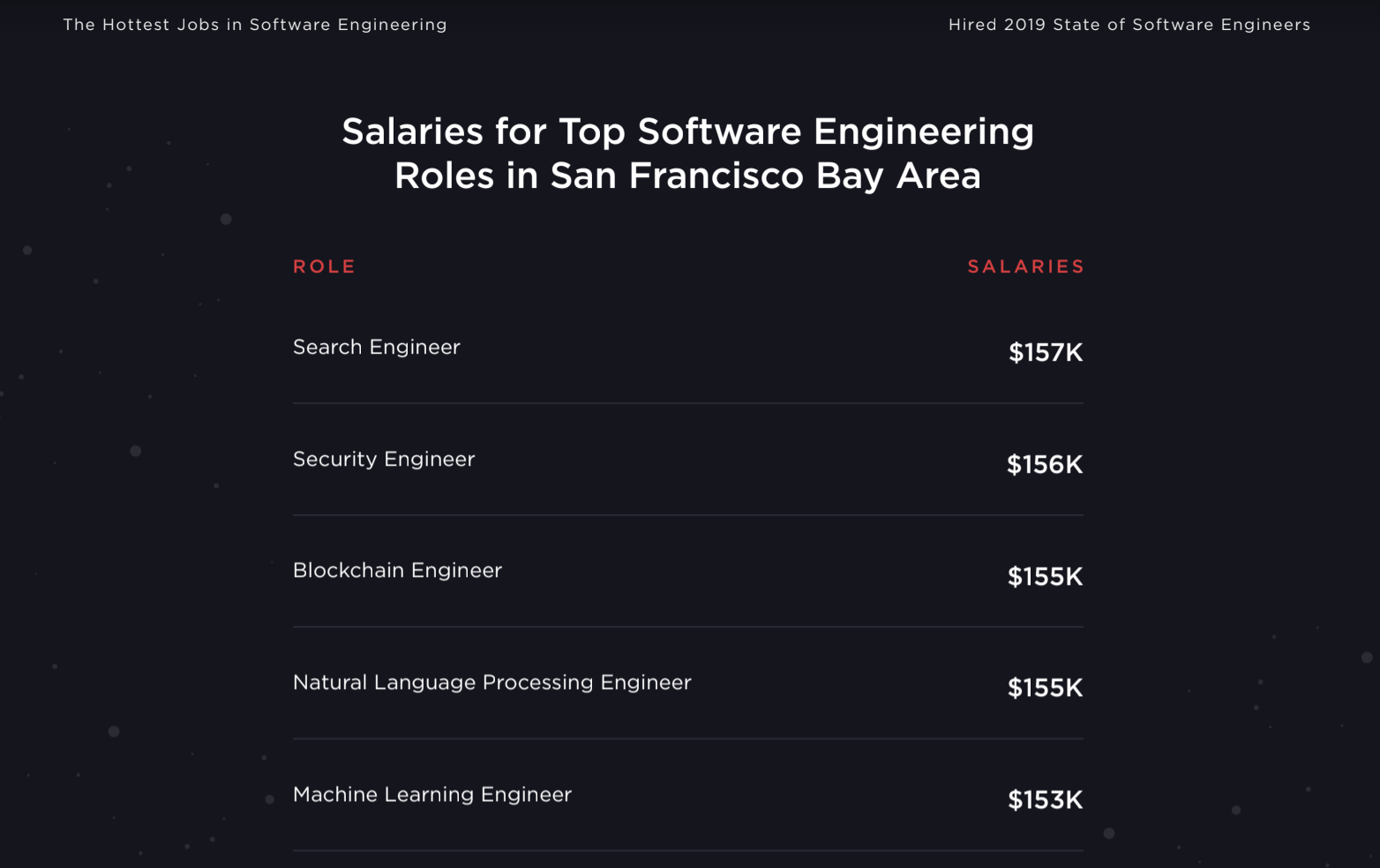Looking for a high-paying, in-demand job as a programmer? Learning to code for blockchain applications is the way to go, according to a survey from the job placement organization, Hired.
In a survey of 98,000 developers on the company’s platform, Hired assessed the kinds of jobs that are most in-demand; the languages that companies are most interested in hiring for; and the top average salaries for careers in several major technology markets including London, New York, Paris, and San Francisco.
The results — as they say — may surprise you.
Actually, they probably won’t. Across the industry demand for blockchain engineers and security engineers have increased the most, according to Hired’s data. Companies requesting programmers with blockchain experience shot up a whopping 517% in 2018 from 2017, while company searches for security engineers were up 132% over the year ago period, according to the company’s data.
Across all geographies, the jobs with the highest paying salaries, on average, were divided among security engineers, search engineers, blockchain engineers, natural language processing engineers, machine learning engineers, and gaming engineers, according to the data from Hired.
Here’s the breakdown for San Francisco. 
“In New York, San Francisco and Toronto, blockchain engineers are among the top three highest paid,” Hired chief executive Mehul Patel, wrote in a blog post about the data. “When you zoom into salary data for software engineers in key tech hubs, it also speaks to how much talent needs fluctuate from city to city. For example, gaming engineers are the highest paid group in New York, while demand for natural language processing engineer salaries are soaring in Toronto.”
Despite increasing demand, blockchain skills still aren’t top of mind among developers, according to the survey. Only 12% of the programmers surveyed on Hired’s platform said that they were most interested in learning about the technology.
That disconnect also applies to the coding languages that are most in-demand and the number of developers who have experience programming in the language.
Candidates who know the programming language Go are the most in-demand, according to the Hired report, but when surveyed, only 7% of developers said they primarily work with it.
Other languages, like Scala, Ruby, Typescript and Kotlin are also highly valued by employers but have lower penetration rates among the developer community. Globally, Go is the most popular programming language that employers are looking for, while in San Francisco and Toronto there’s higher demand for Typescript experience, the Hired report indicated.

Comments
Post a Comment